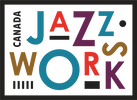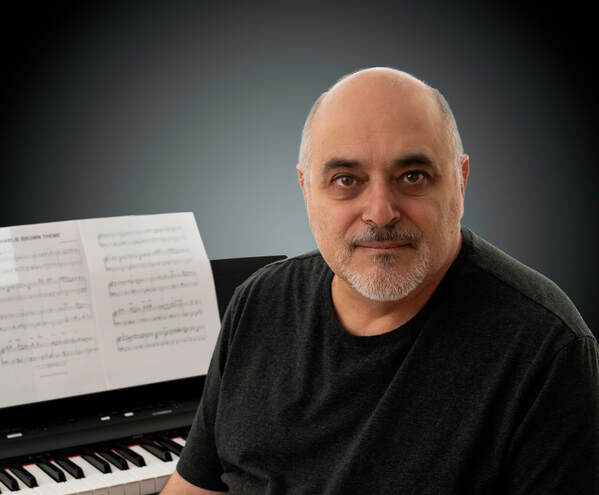Staying Focused in the Time of COVID
Author: Rob Brun del Re
[email protected]
Date: August 12, 2020
Disclaimer: The opinions expressed in this article are those of the author and are not necessarily those of Ottawa Jazz Happenings or of JazzWorks Canada.
One of the great things about jazz is that it’s an art form that requires — even demands — constant study, reflection, exploration, and development. One of the great things about jazz musicians (and the jazz community) is that they know this.
Let me outline my approach for staying musically focused in these times of the pandemic — for keeping motivated while things around us seem stacked against us to hinder it. And it probably comes as no surprise that much of my approach focuses on personal development. But that’s not all. There are some aspects of my strategy that may surprise you and I hope will help you in your jazz journey.
The first thing may seem quite mundane. It involves 'getting your head around the situation'. This can be a long and difficult process, but I made it a key element of my strategy. It’s known as 'situational awareness'. I had to move past being annoyed at how my life had changed. Dig in, stay informed, and try to really understand what’s going on. This awareness helps me peer into the future: where will we be in six months, one year, and beyond? Got to factor some of this thinking into my plan.
The next step was deciding I needed a plan. Sounds trite. It isn’t. It’s amazing what you can accomplish when you set an objective and plan against it.
So I accepted what’s going on, have a fairly good idea of what the coming year will look like, and decided I need a plan. Next came some reflection on a series of facets about myself and my bandmates. Here are some points I pondered:
So I lined up some objectives and formulated a plan in late spring. I won’t go into its elements, but suffice it to say that I’ve learned an Oscar Peterson transcription of A Train, worked on modal lead lines, pentatonic and diminished scales, quartal voicings, and sundry other musical developments. The band has a list of ten songs to work on. We talk regularly and of late are planning socially distanced practices in my garage while the weather is good. Just recently I’ve started exploring musical venues/gig opportunities to start lining up some engagements — safe and socially distanced, mind you.
Oh, and I’ve watched about a dozen Netflix documentaries on music or musicians I might not have otherwise gotten to. And Will Ferrell’s 'Eurovision' — lots of fun!
The toughest part of all of this has been getting behind an instrument by myself, without any bandmates around. It’s really hard as a pianist when you’re used to having bass and drums with you. Not being able to practice with a lead instrument (a vocalist in our case) makes it particularly difficult. My strategy for this: put a keyboard in a room I’m likely to visit, set objectives to learn material I’ve been meaning to learn, and learn them!
It’s been a tough adjustment, but my advice is simple: gain a deep appreciation for the new reality, decide you need a plan, set some objectives (especially ones that factor in new-found available time), and then do what you can to meet them, knowing that someday, someone will appreciate your efforts. You most surely will.
Hey, even stretch a little: I never thought I’d learn an Oscar Peterson number. Mind you, there are still eight bars I need to nail down. BUT man, what an experience!
Rob
Let me outline my approach for staying musically focused in these times of the pandemic — for keeping motivated while things around us seem stacked against us to hinder it. And it probably comes as no surprise that much of my approach focuses on personal development. But that’s not all. There are some aspects of my strategy that may surprise you and I hope will help you in your jazz journey.
The first thing may seem quite mundane. It involves 'getting your head around the situation'. This can be a long and difficult process, but I made it a key element of my strategy. It’s known as 'situational awareness'. I had to move past being annoyed at how my life had changed. Dig in, stay informed, and try to really understand what’s going on. This awareness helps me peer into the future: where will we be in six months, one year, and beyond? Got to factor some of this thinking into my plan.
The next step was deciding I needed a plan. Sounds trite. It isn’t. It’s amazing what you can accomplish when you set an objective and plan against it.
So I accepted what’s going on, have a fairly good idea of what the coming year will look like, and decided I need a plan. Next came some reflection on a series of facets about myself and my bandmates. Here are some points I pondered:
- What are my musical objectives? Are these clear in my mind?
- Are my bandmates on the same trajectory? What are their goals and objectives? (Have we even had a discussion on these?)
- Where am I in my musical development? What needs improvement?
- Can I develop further on my own? If not, what additional resources do I need?
- Explore what others are doing; e.g. Zoom meetings, band meetings, bilaterals, gigs, etc.
So I lined up some objectives and formulated a plan in late spring. I won’t go into its elements, but suffice it to say that I’ve learned an Oscar Peterson transcription of A Train, worked on modal lead lines, pentatonic and diminished scales, quartal voicings, and sundry other musical developments. The band has a list of ten songs to work on. We talk regularly and of late are planning socially distanced practices in my garage while the weather is good. Just recently I’ve started exploring musical venues/gig opportunities to start lining up some engagements — safe and socially distanced, mind you.
Oh, and I’ve watched about a dozen Netflix documentaries on music or musicians I might not have otherwise gotten to. And Will Ferrell’s 'Eurovision' — lots of fun!
The toughest part of all of this has been getting behind an instrument by myself, without any bandmates around. It’s really hard as a pianist when you’re used to having bass and drums with you. Not being able to practice with a lead instrument (a vocalist in our case) makes it particularly difficult. My strategy for this: put a keyboard in a room I’m likely to visit, set objectives to learn material I’ve been meaning to learn, and learn them!
It’s been a tough adjustment, but my advice is simple: gain a deep appreciation for the new reality, decide you need a plan, set some objectives (especially ones that factor in new-found available time), and then do what you can to meet them, knowing that someday, someone will appreciate your efforts. You most surely will.
Hey, even stretch a little: I never thought I’d learn an Oscar Peterson number. Mind you, there are still eight bars I need to nail down. BUT man, what an experience!
Rob
About the Author
Despite a lifelong passion for music, Rob is a Professional Engineer with a Master’s degree in electronics. He spent a full career working as an engineer, then as an executive in Canada’s defence sector. Now retired, Rob devotes a significant amount of time to catching up with his musical ambitions, primarily studying and developing a traditional jazz style. Rob is an active member of JazzWorks Canada: he gigs regularly (when allowable) with Miss Scarlet in the Lounge and with the Starlight Jazz Combo. Rob’s other passions are flying radio control sailplanes and researching colonial America. Rob has published one non-fiction book – “UFOs: Proof Positive - Debunking UFO Debunkers” and is currently working on a novel about lost secrets in Puritan New England.
Despite a lifelong passion for music, Rob is a Professional Engineer with a Master’s degree in electronics. He spent a full career working as an engineer, then as an executive in Canada’s defence sector. Now retired, Rob devotes a significant amount of time to catching up with his musical ambitions, primarily studying and developing a traditional jazz style. Rob is an active member of JazzWorks Canada: he gigs regularly (when allowable) with Miss Scarlet in the Lounge and with the Starlight Jazz Combo. Rob’s other passions are flying radio control sailplanes and researching colonial America. Rob has published one non-fiction book – “UFOs: Proof Positive - Debunking UFO Debunkers” and is currently working on a novel about lost secrets in Puritan New England.

